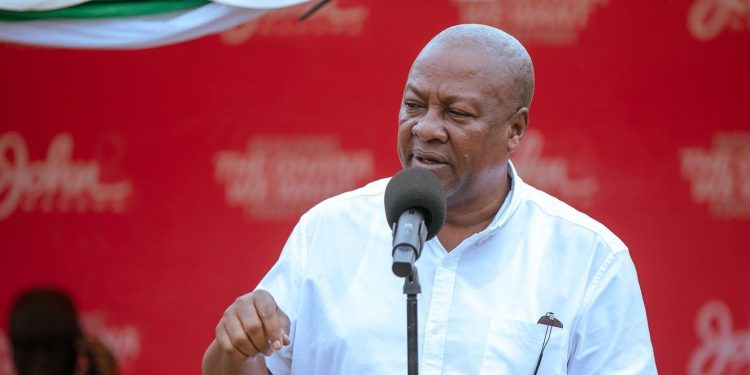President-elect John Mahama outlines bold plans to tackle corruption, reduce public sector waste, and implement constitutional reforms.
President-elect John Dramani Mahama has reaffirmed his commitment to addressing corruption and curbing public sector waste as central pillars of his administration’s development agenda.
Speaking in an interview with DW TV, Mr. Mahama outlined plans for sweeping reforms aimed at improving governance, enhancing accountability, and reducing inefficiencies that hinder national progress.
He also acknowledged widespread public dissatisfaction with the mismanagement of state resources, inefficiencies in governance, and the country’s escalating national debt. He described corruption and waste as significant barriers to the nation’s development and pledged to intensify efforts to combat these challenges.
“Corruption and waste are major obstacles to progress,” he stated. “We must improve our governance system to reduce waste caused by corruption and ensure our economic managers can better handle the nation’s finances, preventing the current situation of unsustainable debt.”
According to Mahama, he will revisit Ghana’s constitutional review process to modernize the governance framework. He noted the need to align the constitution with the nation’s current realities and strengthen mechanisms that ensure accountability within public institutions.
“One of the first things we will do is revisit the constitutional review and examine how we can restructure it to create a more dynamic framework for the future,” Mr. Mahama explained.
He noted that constitutional reforms would include provisions to impose severe penalties on individuals found guilty of corrupt practices, underscoring his administration’s zero-tolerance stance on corruption.
Strengthening anti-corruption measures
John Dramani Mahama further highlighted the importance of a robust anti-corruption framework, pledging to enhance the capacity of state institutions tasked with investigating and prosecuting corruption cases. He stressed that public officeholders who misuse state resources for personal gain would face significant consequences under his leadership.
“These reforms will not only reflect Ghana’s current realities but also incorporate mechanisms to ensure accountability and impose meaningful consequences on those who misuse public office,” he added.


